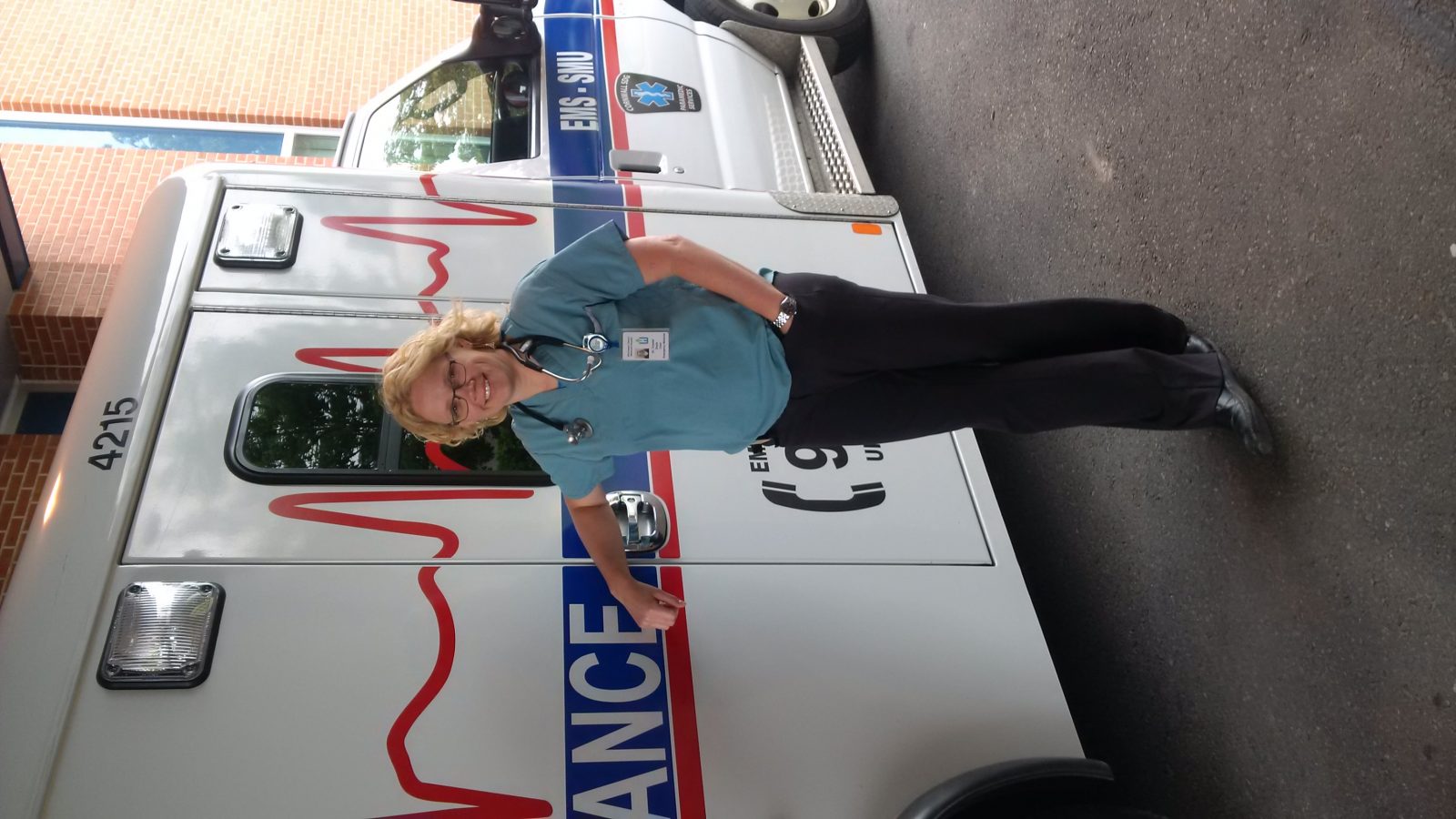WINCHESTER, Ontario – As Chief of Emergency Department at Winchester District Memorial Hospital (WDMH), Dr. Crystal Doyle knows a bit about handling a crisis. But she says a lot of her multi-tasking training has happened at home – looking after her four kids under the age of 11. “Things are always a bit crazy, especially when I’m coaching baseball,” Dr. Doyle laughs. “Now I have three kids in hockey.”
Dr. Doyle has been Chief of Emergency for about a year. Her family moved to Greely three years ago from the east coast where she completed medical school in Halifax. She did her residency in Kingston. “I chose Winchester Hospital because of the sense of community,” Dr. Doyle says. “It’s a nice place to work and the nursing team has makes me feel more like family.”
In her new role, Dr. Doyle has been instrumental in supporting several projects to help improve care: “We want to improve processes, so we can treat patients as quickly as possible and reduce the number of patients who may need to return to the Emergency.” For example, a new program is helping identify people with subtle signs of a serious infection at triage so that the entire team can work together to get the best care sooner. The ER team is also partnering with CHEO on a surveillance project to help youth with mental health challenges access appropriate community services.
The other major challenge that all staff are working to address is wait times. There were close to 24,000 visits to the WDMH Emergency last year and wait times vary, and can change quickly, depending on who else arrives and what their needs are.
Every Emergency patient is assessed by a Registered Nurse who is trained to triage or prioritize each patient’s problem on a nationally standardized scale of one to five – one is the most urgent and five is non-urgent. Patients that are classified as one and two usually go straight inside for a more thorough examination. Those triaged as three to five may be asked to sit in the waiting room until their name is called. Patients arriving by ambulance are treated the exact same way.
“The wait time may change if patients with more urgent needs arrive,” explains Dr. Doyle. “Sometimes it seems like others who come later are being treated before you, but it is only because their needs require sooner action. We appreciate everyone being a patient patient.”




